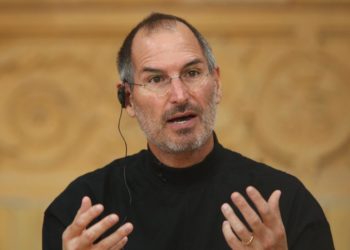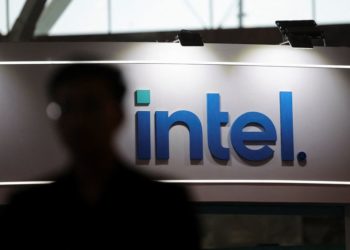After Donald Trump won the presidential election, Washington, D.C., Mayor Muriel Bowser flew to Trump’s Mar-a-Lago estate to see him.
When Republicans pressured her over the giant “Black Lives Matter” lettering she installed in front of the White House during Trump’s first term, Bowser agreed to remove it. Her reasoning: The city had bigger fish to fry, particularly on managing the federal job cuts Trump has enacted this year.
Now, as Trump federalizes the police in the capital and deploys the National Guard, Bowser faces perhaps the biggest test to date of her leadership and her ability to navigate the White House.
Bowser’s comments in response to the announcement illustrate how she’s often trying to communicate multiple messages at one time.
Describing Trump’s executive action as “unsettling and unprecedented,” Bowser on Monday blasted the city’s lack of full autonomy without personalizing that frustration or criticizing Trump directly.
“I can’t say that given some of the rhetoric of the past that we’re totally surprised,” she said.
Minutes later, she suggested the federal intervention may work to the city’s benefit and told reporters she didn’t have the legal authority to stop Trump’s plans.
“The fact that we have more law enforcement and presence in neighborhoods, that may be positive,” said Bowser.
By comparison, House Minority Leader Hakeem Jeffries said Trump has no credibility in the law and order space.
“The crime scene in D.C. most damaging to everyday Americans is at 1600 Pennsylvania Ave,” Jeffries posted, referencing the address of the White House.
Other Democrats like Los Angeles Mayor Karen Bass, who dealt with Trump’s deployment of the National Guard in her own city, also dismissed the president’s actions.
“To me, it just all boiled down to being a stunt and I just don’t think you should use our troops for political stunts,” said Bass.
Christina Henderson, a member of the DC council, suggested she empathized with the difficult balance Bowser is trying to strike. She noted that only in 1973 did Congress allow DC residents to elect a mayor, council members and neighborhood commissioners, but prohibited the council from enacting certain laws and the city from having voting members in the US House or Senate.
“You do not want to be the mayor that loses home rule and that there is no mayor after you,” Henderson said.
Asked if she planned to push back harder in the wake of an unprecedented undermining of her authority, Bowser said Monday, “My tenor will be appropriate for what I think is important for the district and what’s important for the district is that we can take care of our citizens.”
But Bowser struck a stronger tone during a virtual conversation with community leaders on Tuesday.
Asked what residents can do, Bowser said, “This is a time where community needs to jump in and we all need to, to do what we can in our space, in our lane, to protect our city and to protect our autonomy, to protect our Home Rule, and get to the other side of this guy, and make sure we elect a Democratic House so that we have a backstop to this authoritarian push.”
Veteran city reporter Tom Sherwood, a political analyst for DC public radio station WAMU, says Bowser is trying to be strategic.
“I believe that the mayor has done all she can do to tend to the weather-vane attitude of President Trump,” Sherwood said. “The image from the president is that the district is a liberal, mostly Black city that doesn’t care about fighting crime, and so that’s left the mayor and the DC Council as prime targets for him.”
Anti-Trump sentiment is fierce in activist spaces across the city, which former Vice President Kamala Harris won last year with 90% of the vote.
At a demonstration this week, the Free DC project, a movement grounded in demanding DC statehood, denounced the Trump administration’s actions. Organizers accused Trump of trying to provoke violence and compared immigration arrests to kidnappings.
“Black Washingtonians have long recognized that community violence cannot be solved through state violence,” said Free DC’s organizing director Nee Nee Taylor, questioning the effectiveness of policing over investing in social programs to uplift the most vulnerable.
“We will not be idle as oppressors’ structures try to harm our communities and take power,” she added.
When asked if she was disappointed Bowser was not mirroring the intense pushback as seen and heard from community members on city streets, Taylor said she thinks the mayor is doing all she can and that she is occupying a different role.
“I think she’s standing up to the best of her ability, being that DC is not a state,” Taylor said.
For more CNN news and newsletters create an account at CNN.com
The post DC Mayor Bowser changes her tone on Trump as crackdown ramps up appeared first on CNN.




